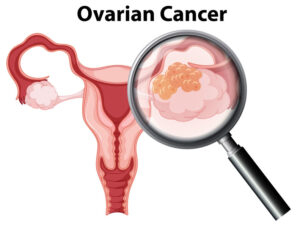When you’re pregnant, there is so much to think about, it can sometimes become overwhelming. From the changes your body faces, to ensure you prepare for what is to come in the next 9 months. This will include doing research, speaking to doctors, buying baby clothes, and even just making sure you find the most suitable clothing and footwear can be a challenge. It is definitely worth looking at what different companies like https://www.bobux.co.uk/baby offer to see what is out there, it is only natural to want the best for your baby. You also have to be spending a lot of time learning about how to care for your child once they are born. You need to know that a baby’s hearing develops over time, what their vision is like, how to identify when your baby is ill, etc. but it’s also important to think about yourself too. This is where continuing your care check-ups into the fourth trimester comes in. With all the anticipation of pregnancy finally culminating in THE BIG EVENT; i.e., the delivery, this can be quite overwhelming for new moms. HELL, it’s overwhelming for women that are already moms. And as I oft times tell women, as wonderful and beautiful as pregnancy is, it’s also HARD as all get out, and being a mom is like nothing you’ve ever experienced. You gotta be a mom to understand that one. Trust me, I had NO IDEA until it happened to me; ie., motherhood.
In an effort to transition expectant moms and even women that are already moms into the world of postpartum affairs(sounds like an FBI bureau of sorts, no?), ACOG(the American College of Obstetrics and Gynecology) is now recommending 4th trimester care.
Strong move ACOG! This is sooooo needed. Specifically with all the news about maternal morbidity and mortality of late. There is much work that needs to be done to alleviate that and keep our moms safe. This is a step in the right direction.
So here are a few reasons fourth trimester care is much needed:
It allows a continued connection between the obstetrician and the patient. As I always tell patients at the time of discharge, “just because you’ve delivered the baby doesn’t mean I stop being your doctor. If you have any questions or concerns, you can call or come and see me ANYTIME!” Sometimes moms feel like they are bothering their doctor; NOT the case. A 3 week visit instead of the current 6 week postpartum visit would allow an opportunity to make sure that all is well on the home front. Specifically, that the mom is healing well, not too overwhelmed, caring for baby properly, has adequate support, etc.
It’s a great way to ensure that medical conditions that complicated the pregnancy are continuing to be managed, and that future care regarding management of said chronic medical conditions can be or has been established. I’m speaking specifically about things such as chronic hypertension, thyroid disorders, mental health issues, diabetes, etc. Just because baby has delivered doesn’t mean we can now ignore these issues.
Allows for early screening for postpartum depression. This is key in moms that already have pre-existing mental health issues, children that were born prematurely and are in the NICU, moms that are single moms whether that be by choice or perhaps due to a spouse that is deployed. On top of that, throw in sleepless days and nights, getting to know your newborn baby, incorporating a newborn into the mix with the rest of the kids, pets, etc. Can we say OVERWHELMING! Even with all the resources in the world, this can be A LOT for the best of us. Postpartum depression is VERY real. Catching it in its early stages is CRUCIAL to prevent potential harm to both mom and baby.
Its an opportunity to ask those questions that we all are curious about but may be a bit embarrassed to bring up about our bodies post delivery. You know, how long will it take me to lose my post delivery weight? If you had a c-section, will your six-pack come back? How long will I keep bleeding, it’s annoying and gross? When will I be able to have sex again? Will it hurt and for how long?
We can begin to plant the seed of family planning, specifically spacing of children, contraceptive options, etc. This allows moms to reflect, perhaps do some research on their own, so that they can be an active part of this conversation at the future postpartum visit.
One of the reasons I chose a career in medicine is that it is a field that is CONSTANTLY changing. I’m happy to see that the field of obstetrics and gynecology is evolving in this aspect of women’s care. Pregnancy, childbirth, and postpartum well being is a continuum. This new dictate of seeing moms sooner after delivery; i.e., 3 weeks instead of the traditional 6 weeks is a step in the right direction. The subsequent visit, which should be within 12 weeks of delivery will be tailored to each woman’s needs. Some women will need to be seen sooner than others. It’s an opportunity to ensure that the needs of our patients are being met, and not overlooked. It’s an opportunity to reassure women that they still do matter. Even more so now than ever as they embark on the journey of motherhood. Their safety and well-being continues to be of the utmost importance even after the delivery.
Hoping this blog post has enlightened.
Until next time,
Look Better. Feel Better. Be Better.
Dr. Angela










